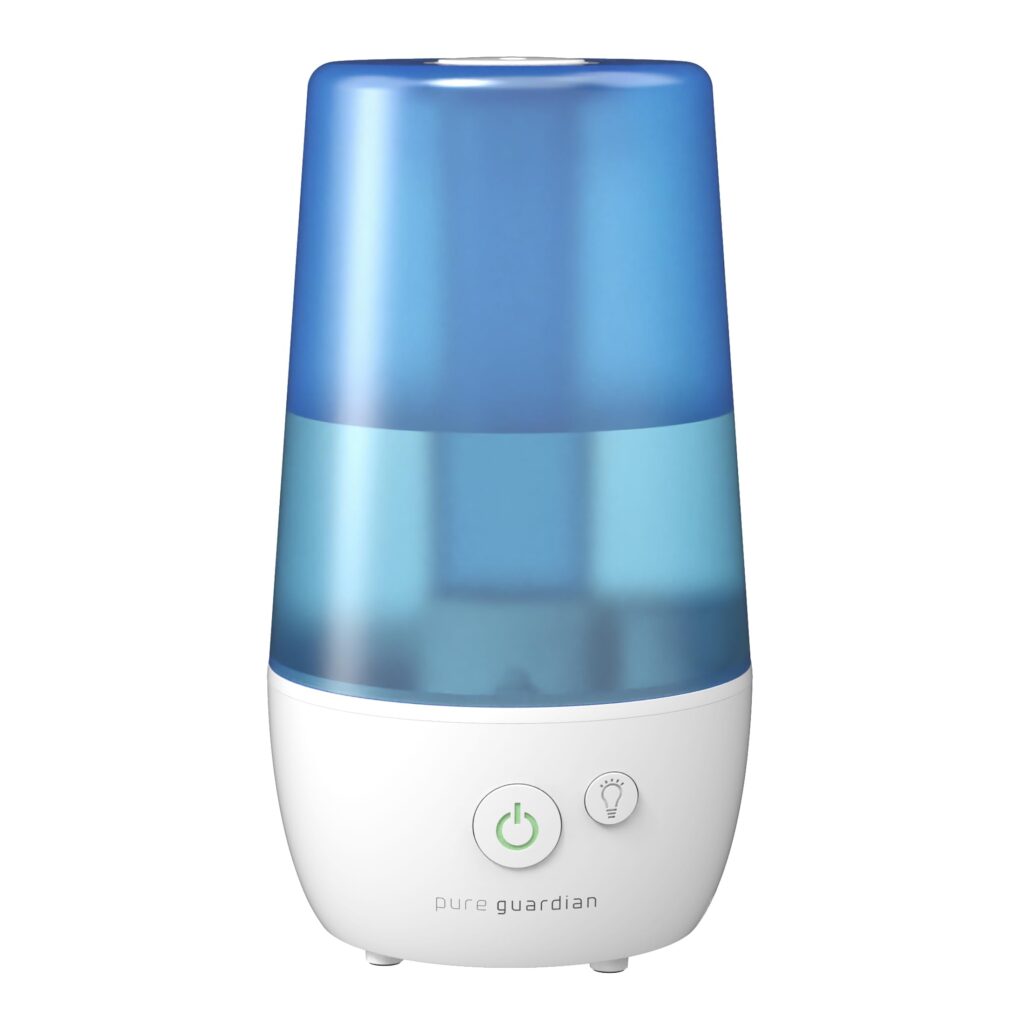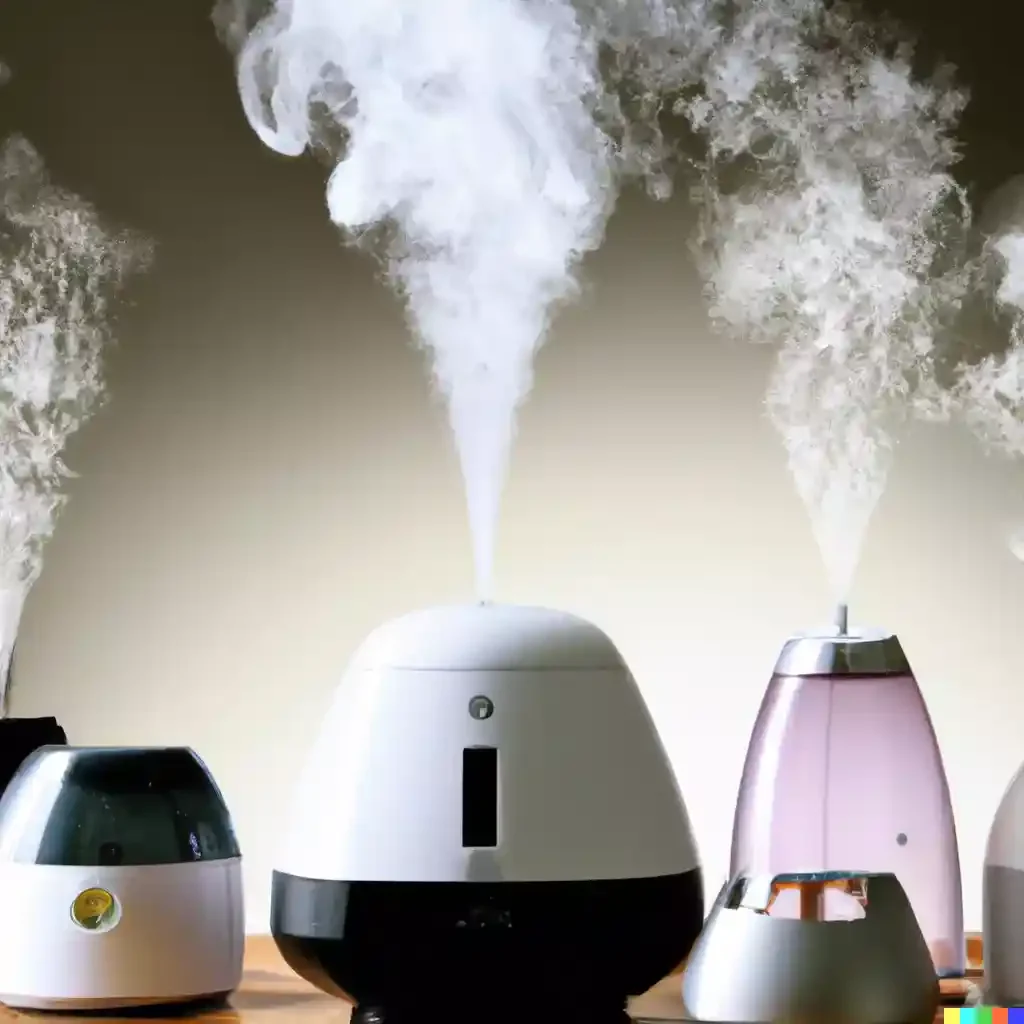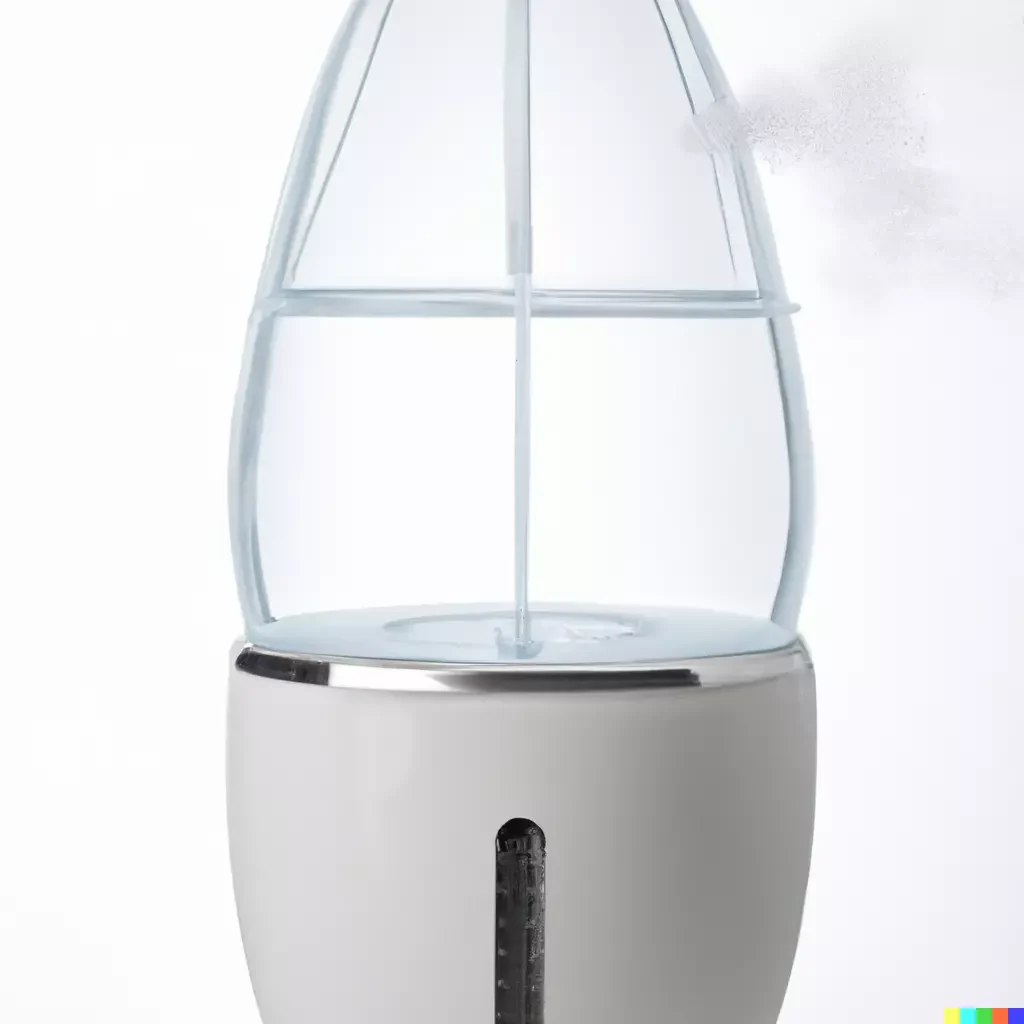The best water to use in a humidifier is distilled or demineralized water. Tap water can lead to mineral buildup and bacterial growth.
Choosing the right water to boost your humidifier’s performance is critical. Using distilled or demineralized water prolongs the life of your device and ensures cleaner air. Unlike tap water, which contains minerals that can create deposits inside your humidifier and potentially emit into the air, distilled water keeps your air pure and unit functioning smoothly.
Consider this: a well-maintained humidifier can significantly improve air quality. This reduces the risk of irritation to your respiratory system and makes breathing easier, especially during dry seasons. Regular maintenance, along with the correct type of water, can help avoid the dispersal of harmful particles, ensuring a healthy home environment.
The Pure Mist Secrets Unveiled
When considering household air quality, many overlook the subtle influence of the humble humidifier. A device central to comfort and health, especially during dry seasons, the humidifier needs attention—starting with the water poured into it. It’s no secret. The quality of water used can make a stark difference in the performance of your humidifier and the quality of mist you breathe. Let’s unveil the secrets of ‘Pure Mist’ and discern why water purity is a critical aspect to focus on.
Importance Of Water Quality In Humidifier Performance
The caliber of water coursing through your humidifier affects everything from the lifespan of the device to the air you inhale. Mineral-rich water, commonly known as hard water, can leave deposits within the machine, compromising the integrity of its internal components and functionality. Reduced efficiency, increased maintenance, and even potential breakdowns could all result from using suboptimal water. Furthermore, the mist dispersed into your room could carry minerals and bacteria, potentially affecting respiratory health.
- Decreased Efficiency: Mineral buildup can cause humidifiers to work harder to achieve the same level of humidity.
- Increase Maintenance: More frequent cleaning and descaling are required to prevent malfunctions.
- Possible Health Risks: Propagation of airborne impurities that could trigger allergies or respiratory issues.
Overview Of ‘pure Mist’ Concept
‘Pure Mist’ refers to the fine spray of clean moisture that a well-maintained humidifier emits. To achieve this, the device should only use water with as few impurities as possible. Distilled or demineralized water is often the top choice, as it lacks the mineral content of tap water that leads to buildup and bacteria growth.
Distilled Water: Boiled and condensed back into a liquid to remove impurities.
Demineralized Water: Filtered through processes that remove minerals and salts.
By prioritizing the purity of the water used, not only does the ‘Pure Mist’ concept ensure a cleaner atmosphere, but it also preserves the longevity of the humidifier’s performance.
| Water Type | Benefits | Considerations |
|---|---|---|
| Distilled | Mineral-free, optimal for ‘Pure Mist’ | May require purchase or distillation |
| Demineralized | Non-corrosive, reduces maintenance | Filter replacement costs over time |
| Tap Water | Readily available, cost-effective | Can contain minerals and impurities |
Understanding Tap Water Traits
When it’s time to refill your humidifier, reaching for the nearest tap might seem like the most convenient option. But is tap water the best choice for your device? Delving into the qualities of tap water can give us insights into how it interacts with your humidifier, potentially affecting its performance and the air quality in your space.
Minerals And Impurities In Tap Water
Tap water, although safe for drinking, carries a blend of minerals and impurities. These can include but are not limited to calcium, magnesium, and trace amounts of other substances. While beneficial in drinking water, these minerals can have different implications when used in humidifiers.
- Calcium and Magnesium: Contribute to “hard water” and can cause mineral buildup inside the humidifier.
- Chlorine: Often used to treat water and may emit unpleasant odors when dispersed through the humidifier.
- Microbial Contaminants: While rare, tap water can carry microorganisms potentially dispersed into the air.
Potential Impact On Humidifier Components And Mist Purity
Understanding the impact of tap water on your humidifier is essential for maintaining both the unit’s longevity and optimal air quality. Let’s explore how tap water might influence these aspects.
| Component | Impact of Tap Water |
|---|---|
| Heating Element | Mineral buildup can insulate the heating element, reducing efficiency and potentially leading to overheating. |
| Ultrasonic Diaphragm | Mineral deposits can impair the vibration frequency, affecting the production of mist. |
| Filters | Can become clogged with minerals, necessitating more frequent changes and higher maintenance costs. |
| Mist Purity | Impurities can be dispersed into the air, affecting those with allergies or respiratory issues negatively. |
The use of tap water may lead to “white dust”, a byproduct of minerals in the water that can settle on surfaces and compromise air quality. Regular cleaning and maintenance are vital to prevent these issues and ensure your humidifier operates efficiently.
Distilled Water Benefits
Choosing the right type of water for your humidifier is crucial for both the performance of the device and the quality of air you breathe. Distilled water stands out as the optimal choice for humidifiers, offering numerous benefits that enhance the efficiency and functionality of these useful household appliances.
Purity Level Comparison To Tap Water
Distilled water boasts an exceptional degree of purity compared to ordinary tap water. The distillation process involves boiling water to produce vapor, which then condenses back into a liquid form free from minerals, impurities, and contaminants commonly found in tap water.
| Contaminant | Tap Water | Distilled Water |
|---|---|---|
| Minerals | Present | None |
| Bacteria | Possible | None |
| Chemicals | Varies | Minimal |
This lack of impurities in distilled water not only safeguards your health but also protects the humidifier from mineral buildup, which can occur when using unfiltered tap water.
Extended Lifespan And Maintenance Perks For Humidifiers
Using distilled water in humidifiers conveys substantial maintenance advantages and extends the lifespan of the device. The absence of minerals prevents the accumulation of scale and lime within the humidifier, which often leads to blockages and inefficiency over time.
- Fewer deposits means less cleaning is required.
- Reduced wear and tear on internal components.
- Less likely to encounter mold and mildew growth.
By ensuring a cleaner operation, owners benefit from reduced maintenance costs and effort, while enabling the humidifier to operate at peak performance for longer periods.
How Distilled Water Contributes To A Cleaner Mist
Distilled water’s purity plays a vital role in providing a cleaner mist. Humidifiers are designed to emit water particles into the air to maintain ample humidity levels. If the water contains impurities, those are also dispersed in the mist, potentially leading to health issues or unpleasant odors.
- Pure mist from distilled water means no mineral dust is released into the room.
- Healthier air quality as there are no dispersed contaminants.
- Ensures a neutral smell, without adding any odors carried by tap water impurities.
Utilizing distilled water ensures that the moisture added to your environment is as clean and pure as possible, reflecting a commitment to health and wellness.
Humidifier Water And Your Health
Using a humidifier can do wonders for your comfort and health, especially during those dry winter months or in arid climates. However, the type of water you use in your humidifier is just as important as the device itself. The water becomes a mist of microscopic droplets that you breathe in, so choosing the right water is crucial to maintain a healthy indoor environment.
Relation Between Water Quality And Airborne Particles
When water is converted into vapor by a humidifier, any particulates or minerals in the water can become airborne. The quality of water directly influences what’s released into the air. For instance, using unfiltered tap water, which often contains minerals and impurities, can lead to a phenomenon known as “white dust”. High-mineral content water, typically known as hard water, can disperse these minerals into the air, potentially affecting air quality and your respiratory health.
- High-quality, low-mineral water reduces the presence of particles.
- Using distilled or demineralized water can mitigate the release of potentially harmful materials.
Risks Associated With Using Poor-quality Water
The practice of using poor-quality water in humidifiers can introduce various risks:
- Microbial Growth: Impure water may lead to the growth of bacteria and mold in the humidifier, which would be dispersed into the air when the machine is in operation.
- Increased Allergens: If the water contains allergens, these can be spread throughout the room, potentially exacerbating allergy symptoms.
- Respiratory Irritations: Minerals and other particles in non-distilled water can irritate the lungs, particularly for people with asthma or other respiratory conditions.
To minimize these risks, it’s advisable to use distilled or purified water in your humidifier, thus ensuring that the mist you’re breathing is as clean and healthy as possible.
Best Practices For Humidifier Care
When you depend on a humidifier to maintain the optimum moisture level in your home, taking care of the device becomes essential. Proper maintenance ensures the longevity of the humidifier and improves indoor air quality. Negligence in care can lead to mold growth, bacterial dispersal, and malfunctioning equipment. Let’s delve into the routines that keep your humidifier running efficiently and the selection of water which plays a pivotal role in its maintenance.
Cleaning and maintenance routinesCleaning And Maintenance Routines
A consistent cleaning schedule is crucial for keeping your humidifier in top condition. Follow these steps to maintain a clean and efficient device:
- Empty and refill the water tank daily to prevent stagnation.
- Disinfect the water tank and other parts every week with a solution of white vinegar and water or a manufacturer-approved cleaner.
- Swap out filters or wicks as recommended by the manufacturer, typically every 1 to 3 months, to avoid mineral buildup and contamination.
- Conduct a deep-clean monthly by disassembling the unit and scrubbing all non-electrical parts with a brush and disinfectant.
Thoroughly dry the humidifier before reassembly to ward off mold and bacteria development. For optimal care, always consult the user manual for maintenance instructions specific to your model.
Water choice and its role in device upkeepWater Choice And Its Role In Device Upkeep
The type of water you use in your humidifier is not just a trivial detail—it’s fundamental to the lifespan and proper functioning of the unit. Utilize the following guidelines when choosing the water to fill your humidifier:
| Water Type | Benefits | Considerations |
|---|---|---|
| Distilled Water | Low in minerals; prevents scale and buildup | Can be more expensive than tap water |
| Demineralized Water | Has most minerals removed; reduces white dust | Slightly costlier but less so than distilled water |
| Filtered Water | Removes large particles and some contaminants | Filter quality can vary; not as effective as distilled |
| Tap Water | Convenient and economical | May contain minerals that cause buildup and promote bacterial growth |
The ideal choice for your humidifier is distilled or demineralized water. These options greatly reduce the potential for mineral deposits, while also minimizing the release of white dust—a byproduct of minerals in the water—into your air. Ultimately, the right water choice leads to a cleaner humidifier, improved air quality, and fewer maintenance issues.
Pure Mist Secrets: Optimal Usage
Welcome to Pure Mist Secrets: Optimal Usage. Achieving a harmonious atmosphere in your home starts with knowing the ins and outs of your humidifier. But it’s not just about the device itself; the water you use is pivotal. Join us as we dive into the purified world of humidifiers and discover the best water practices to nourish your space with fresh, clean mist.
Incorporating aromatherapy and humidifier-compatible solutionsIncorporating Aromatherapy And Humidifier-compatible Solutions
Aromatherapy takes the use of your humidifier to a new level. Essential oils, when properly dispersed, can enhance mood, promote relaxation, and even offer health benefits. But not all humidifiers are built to handle these potent botanical extracts. Using the right water-based solutions can extend the life of your humidifier while clearing your sinuses and invigorating your senses. Here’s how:
- Use distilled water to prevent mineral build-up.
- Only add oils that are marked safe for your specific humidifier model.
- Opt for certified therapeutic-grade essential oils for maximum purity and potency.
Achieving The Perfect Humidity Balance With The Right Water
Striking the perfect humidity balance is crucial. The wrong type of water can lead to unwanted mineral deposits and impurities in your home’s air. Here, we outline the best water choices for your humidifier:
| Type of Water | Benefits | Considerations |
|---|---|---|
| Distilled Water | Minimal minerals, reduces white dust | Can be more costly than tap water |
| Demineralized Water | Mineral content reduced, less scale build-up | Might still contain some impurities |
| Filtered Water | Removes large particles and chlorine | Filter quality varies, not all impurities removed |
Tips For Monitoring And Adjusting Indoor Humidity Levels
Managing indoor humidity levels is vital for comfort and health. Excessive humidity encourages mold growth, while low humidity can cause dry skin and irritate respiratory conditions. Keep your indoor air quality in check with these tips:
- Maintain indoor humidity levels between 30% and 50%.
- Use a digital hygrometer to accurately monitor humidity.
- Adjust your humidifier settings based on the current humidity level.
- Regularly clean your humidifier to prevent bacteria and mold growth.
- Increase airflow in over-humidified areas by opening windows or using fans.

Credit: m.youtube.com
Frequently Asked Questions Of Best Water To Use In A Humidifier
Is Distilled Water Safe For Humidifiers?
Distilled water is ideal for humidifiers as it minimizes mineral buildup and the release of white dust. Using distilled water can also reduce the frequency of cleaning and prolong the lifespan of your humidifier.
Can Tap Water Damage Humidifiers?
Tap water often contains minerals that can create deposits inside your humidifier, leading to reduced efficiency and potential damage. It’s typically recommended to use distilled or purified water to avoid these issues.
What Is The Healthiest Water For Humidifiers?
Distilled or demineralized water is the healthiest choice for humidifiers. It lacks minerals that can be dispersed into the air, which may benefit individuals with respiratory issues or allergies.
Do Humidifiers Work Better With Purified Water?
Humidifiers work more efficiently with purified water. Purified water lessens the likelihood of mineral buildup and ensures cleaner moisture output, enhancing your humidifier’s performance.
Conclusion
Selecting the right water for your humidifier is essential for optimal performance and longevity. Distilled water reigns as the top choice, minimizing mineral buildup and ensuring cleaner mist output. Remember this guide on your next refill, and your humidifier will thank you with improved air quality and reduced maintenance hassles.
Keep it pure, keep it simple.





